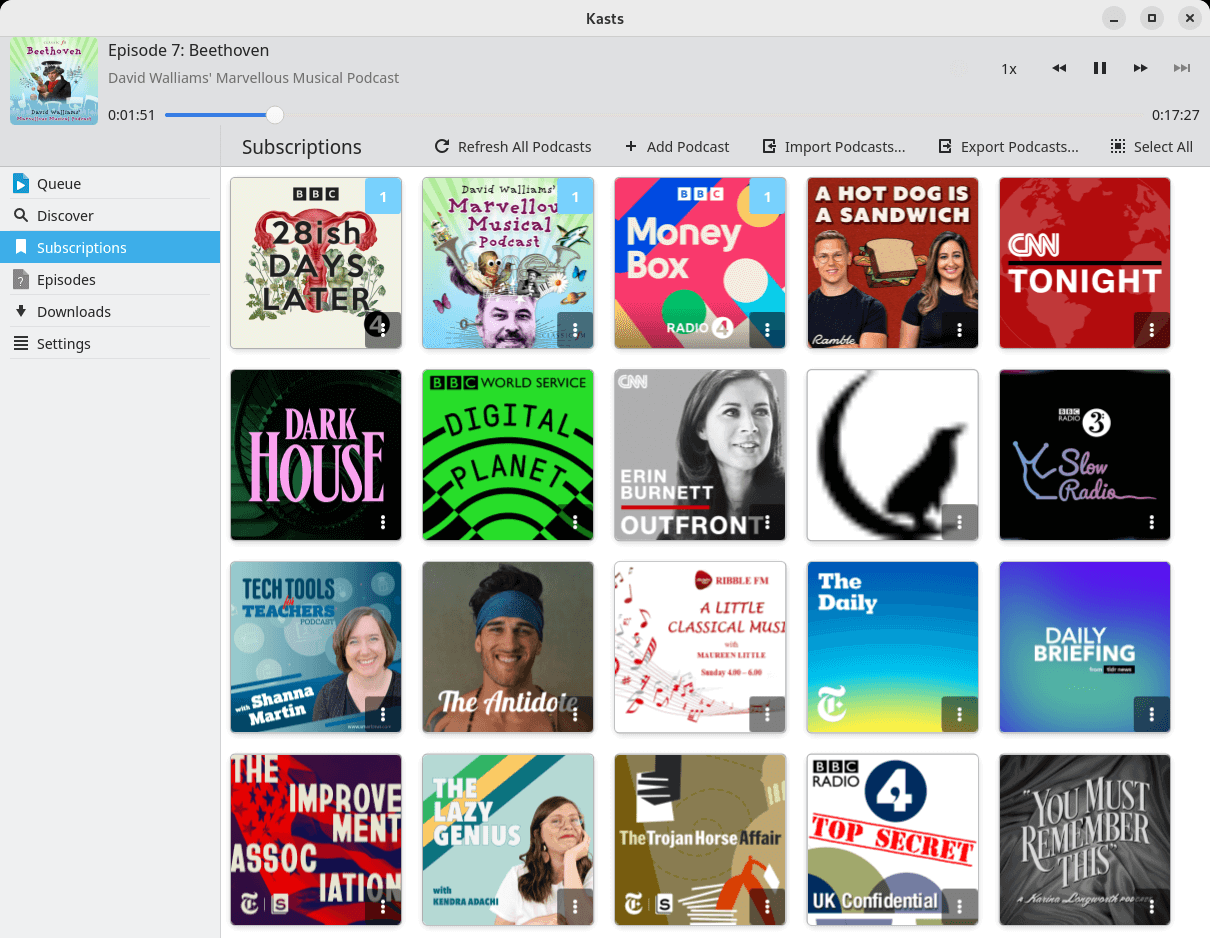Last Updated on February 21, 2023
In Operation
Here’s an image of Kasts in action.

Adding new podcasts to your subscriptions is easy from the Discover section. This section lets you search podcastindex.org for podcasts. While it makes finding podcasts straightforward, it’s not as strong as the implementation by Cantata. Cantata lets us search a wider range of sources: iTunes, GPodder, DigitalPodcast, as well as browsing podcasts beautifully categorized from the BBC and CBC. There’s room for improvement for Kasts in this department.
Kasts offers variable playback speed. This isn’t a feature that is terribly important to us, as we prefer listening to podcasts at their intended speed, but it might be useful to some people. For example, if you’re learning a new language, you might wish to slow down playback.
The software supports full system integration and syncs playback positions with other clients.
We like the range of configuration options such as the ability to automatically queue and download new episodes. That’s a time saver.
According to the wonderful ps_mem memory utility, Kasts consumes around 350MB of RAM. That’s a significantly higher footprint than Cantata.
Pages in this article:
Page 1 – Introduction / Installation
Page 2 – In Operation
Page 3 – Summary

What does convergent really mean? More techno babble?
Convergence means that a piece of software’s user interface can immediately adapt its user experience to the particularities of each type of device that it can run on (desktop, laptop, tablet, phone, etc).
Then again who would want to run KDE shizzle on a phone?
Plasma Mobile is actually good
Normally, apps are written for a Plasma desktop, or a Gnome desktop.
Convergent apps are more fluid – jack of all environments, but master of none (no point trying to use keyboard shortcuts to access a file menu or whatever – it’s usually a point and click/touch friendly interface).
Kasts offers me the option to stream – I don’t download podcasts now unless I want them archived.